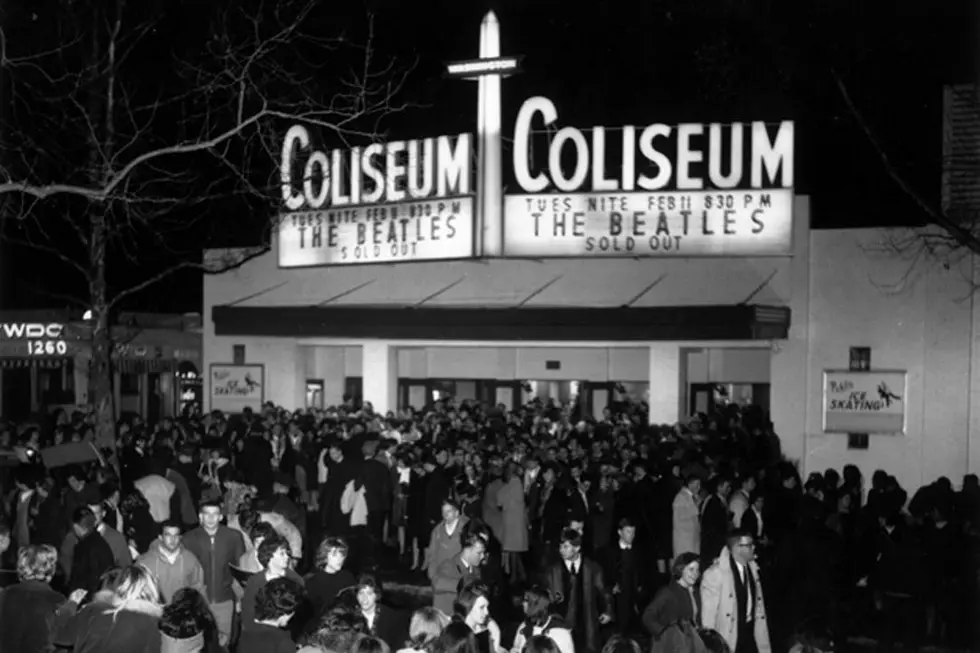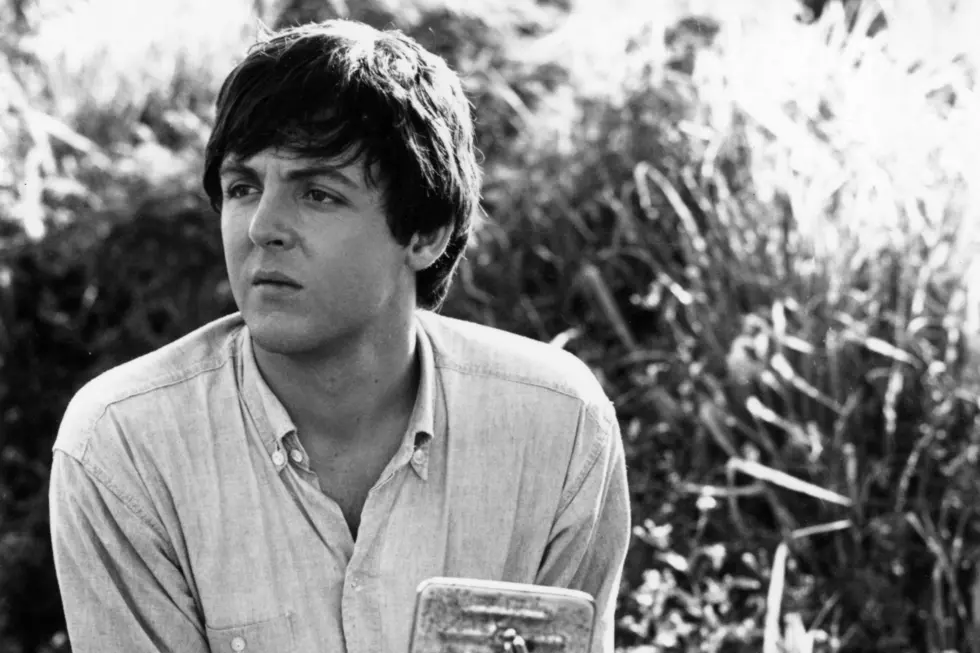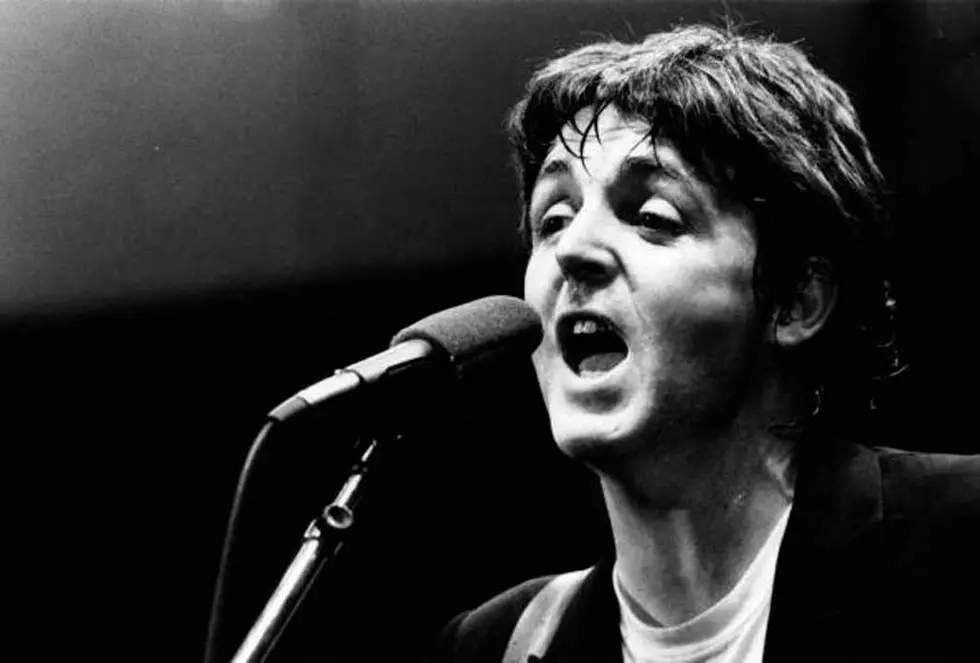
Why Paul McCartney’s ‘Venus and Mars’ Was Uneven, But Ultimately Charming
Paul McCartney followed up a solo career-defining smash with a Wings album populated by miniature delights and distracting whimsy. Venus and Mars, released on May 27, 1975, remains an amiable artifact from a time of deep domesticity for McCartney, an era when – likely, in part, because the success surrounding the multi-platinum Band on the Run – he finally seemed free of the weight of his Beatles fame.
But as with anything so small scale and homey, some of the album falls flat. Some of it is just plain silly (looking at you, "Magneto and Titanium Man"). But the bulk of Wings' Venus and Mars (and its 1976 follow-up At the Speed of Sound, for that matter) nevertheless finds a path – stubbornly, maybe inexplicably – into any pop music lover's heart. A stabilized Wings, which would feature the same lineup on consecutive albums for the first time, synced up with an already-cozy family life to shower everything in this warm, inviting glow.
Maybe it's the way McCartney weaves an old-fashioned science-fiction theme into Venus and Mars, or the loose premise of a day around the farmhouse on At the Speed of Sound. Maybe it's just McCartney being McCartney. Venus and Mars can be both as appealing and as confounding as its restless creator.
And sometimes, as with "Listen to What the Man Said," all at once. The biggest hit on Venus and Mars, it tends to get cuffed around for an overt sleekness, but listen more closely, and it's filled with particular delights – the horn signature, the funky bass, a turn by former Traffic guitarist Dave Mason. McCartney finds a way to make things worthwhile, even if it's purely by happenstance.
"It was one of the songs we'd gone in with high hopes for," McCartney admitted in a 1975 interview. "Whenever I would play it on the piano, people would say 'Oh, I like that one.' But when we did the backing track, we thought we didn't really get it together at all. ... Someone said [famous jazz musician] 'Tom Scott lives near here.' We said, yeah, give him a ring, see if he turns up, and he turned up within half an hour! There he was, with his sax, and he sat down in the studio playing through. The engineer was recording it. We kept all the notes he was playing casually. He came in and I said 'I think that's it.' He said 'Did you record that?' I said yes, and we listened to it back. No one could believe it, so he went out and tried a few more, but they weren't as good. He'd had all the fell on this early take, the first take."
Listen to Wings Perform 'Venus and Mars / Rockshow'
Personally content but still boundlessly creative, McCartney was incapable of making a completely uninteresting album – even when he sets his sights far lower than anything on Band on the Run, much less his late-period Beatles triumphs. Ultimately, Paul McCartney had not emerged from that partnership ready to make bold statements, and as such didn't find himself trying on as many personas as his former partner John Lennon. Instead, McCartney sharpened and polished the one he already had: master composer, arranger and producer in a dizzying, sometimes frankly confusing array of hit-music styles, with a part-time gig as canny pop-music curator – as with the pre-war goof "You Gave Me the Answer."
He can be too cute by half (the old-folks soap-opera themed coupling of "Treat Her Gently / Lonely Old People" and "Crossroads"); he can seem rather provincial at times ("Love in Song"). Yet he will thwart expectations, all while displaying the same cunning charm. Elsewhere on Venus and Mars, McCartney remained capable of creating with the same passion and focus found on Band on the Run. He explores a minor-key darkness with "Letting Go," and crafts "Call Me Back Again" as a simmering and soulful deep cut, maybe the best Wings song you've never heard.
As for the rest, McCartney indicated at the time that Venus and Mars fell into place – starting with the title.
"When we had a party in the states to celebrate having finished the album, someone came up to us and said 'Hello, Venus. Hello, Mars,'" McCartney said. "I thought, 'Oh. no.' When I write songs, I'm not necessarily talking about me, although psychoanalysts would say 'Yes, you are, mate.' But as far as I'm concerned, I'm not. ... I didn't even know they were our neighboring planets. I just thought of naming any two planets. What were the first that came to mind? I thought, Jupiter, no, that doesn't fit. Saturn, no. Venus and Mars – that's great, I'll just put those in. Later, it turns out they've just done an eclipse, Venus and Mars have lined themselves up for the first time in something like a thousand years. I didn't know they were the gods of love and war either."
Looking back, however, the uneven Venus and Mars could have lined up much differently. There were, in some cases, better songs from the same period that saw release as part of stand-alone singles.
Listen to Wings Perform 'Call Me Back Again'
Later attached to Venus and Mars reissues, "Junior's Farm" was a crunchy romp, while "My Carnival" indulged in some overt second-line fun. The former, in particular, would have added a serrated edge to Venus and Mars; it became Wings' seventh consecutive Top 10 hit. Meanwhile, "My Carnival" – originally tucked away as a B-side to the imminently forgettable "Spies Like Us" 10 years later – once again illustrates McCartney's chameleon-like ability to absorb different styles and make them his own.
So what happened? There may simply have been space considerations. After all, Venus and Mars begins a period in which McCartney displayed a rather quaint insistence on sharing the spotlight. He took a democratic approach on both Venus and Mars and At the Speed of Sound, allowing other members of Wings an unprecedented number of lead vocals, with an eye toward illustrating that this was a true band. Sometimes it works, in a continuation of a theme, and sometimes it doesn't.
For instance, giving Joe English and Linda McCartney the microphone seems blatantly preposterous four decades later. Yet, even here, somehow things work out for McCartney. The late Jimmy McCullough gamely holds his own with "Medicine Jar," and – more importantly – Venus and Mars finally allowed the criminally underused Denny Laine to shine (beginning with a moment of spook-rock on "Spirits of Ancient Egypt").
Laine's presence proved crucially important, and not just because he more than makes up for whatever missteps may have followed from anyone in Wings not named Paul. The band would, despite this period's determinedly familial atmosphere, almost disintegrate prior to 1978's London Town – and it was Laine who helped the McCartneys rebuild once more.
Beatles Solo Albums Ranked
You Think You Know the Beatles?
More From Talk Radio 960 AM










